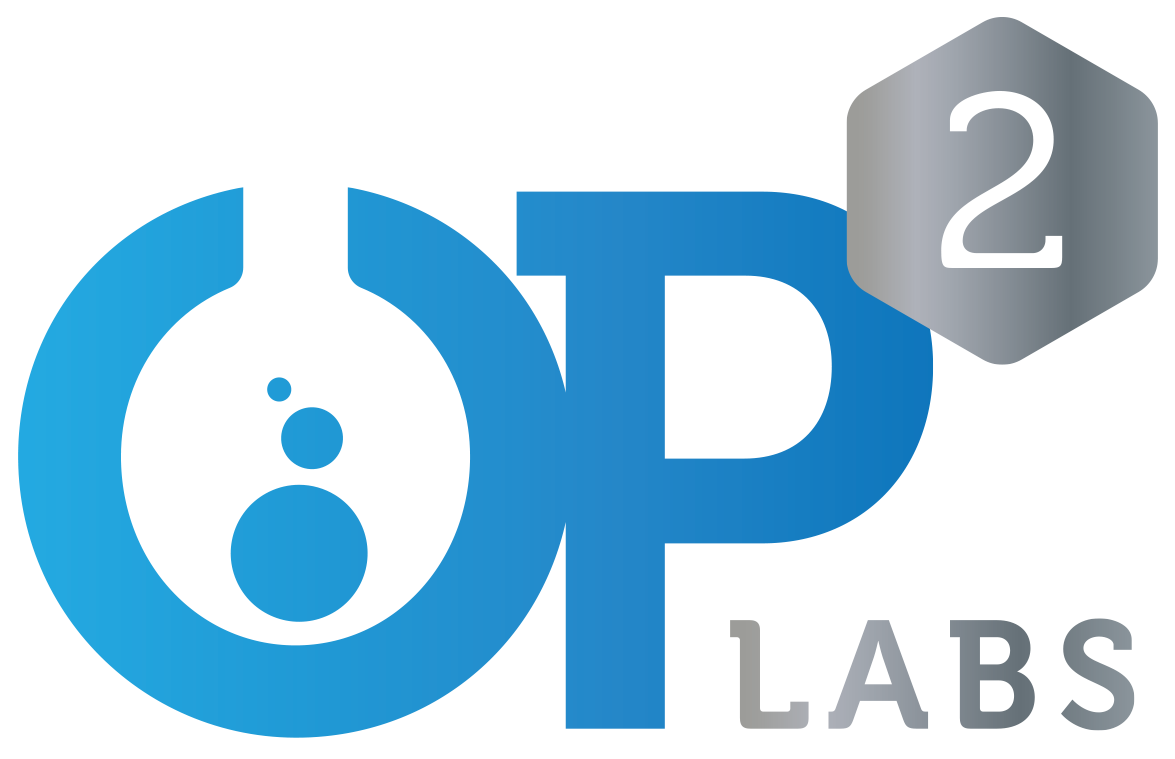Collagen protein vs. whey protein – it’s an interesting match-up and one that some people may think...
10 Benefits of Collagen Supplementation at Any Age

The benefits of collagen supplementation are so rich and varied, collagen can seem like a miracle. But what is this “miracle” supplement? Is it really as powerful as people claim? And what are the benefits of collagen protein compared to other proteins on the market?
When you’re looking for a protein supplement, you want to make sure you’re making the healthiest choice possible. Collagen is well-researched by the scientific community, and there are numerous studies backing up its health benefits.
Today, we’ll be doing a deep dive into collagen and how it can help you be your healthiest self. But before we get into the benefits of collagen supplementation, let’s give a brief overview of what collagen is.
What is collagen?
Collagen is the most abundant protein in animals – including humans! There are 28 known types of collagen, each serving a slightly different function. The most abundant types of collagen are types I, II, and III, so let’s briefly discuss them.
Type I collagen is the most common, making up about 90% of the human body. It’s found in skin, bones, organs, and tendons, and is the most stable form of collagen. The benefits of collagen supplementation are largely due to the stability and bioavailability of this type of collagen.
Type II collagen is essential for cartilage and joint function, as well as being one of the main components of the eye and inner ear.
Lastly, type III collagen is found in large hollow organs, such as blood vessels and bowels.
Each type of collagen has an important role to play in your body. But when you hear about types of collagen, it doesn’t just have to do with biology. Sometimes, it has to do with the process in which the supplement is made, like in the case of hydrolyzed collagen.
What is hydrolyzed collagen?
Collagen is exclusively found in animal tissue. There are several ways to extract it so you can get the benefits of collagen supplementation.
Most supplements extract collagen using hydrolysis. This is especially preferred for high-quality collagen, since it allows for the highest purity and stability of the collagen molecules.
“Hydrolysis” is the process of breaking down sources of collagen into individual molecules, and then breaking those molecules down into even more easily digestible pieces. It does this using water and another chemical – usually salt or enzymes.
So “hydrolyzed collagen” is simply collagen that has been broken down from its raw form in animal tissue into individual, easy-to-digest pieces. There are even more hydrolyzed collagen benefits because supplements with hydrolyzed collagen can be fully absorbed by your body.
What are hydrolyzed collagen peptides?
“Hydrolyzed collagen peptides” can be used interchangeably with “hydrolyzed collagen”.
“Peptides” refers to the strands of amino acids naturally found within collagen. These amino acids are the building blocks your body needs to survive, and can be found in a variety of different foods.
The benefits of collagen supplementation come from just how many of these amino acids are in collagen.
There are nine essential amino acids, and collagen contains eight of them. Some medical-grade collagen supplements are fortified to contain all nine, giving your body everything it needs to survive, heal, and strengthen itself.
So now that you understand what collagen (and hydrolyzed collagen) is, let’s discuss the benefits of collagen supplementation.
10 benefits of collagen supplementation
Collagen has been the recipient of plenty of good press in recent years – mostly for its “anti-aging” properties. Collagen may smooth wrinkles for some people, but the real benefits of collagen supplementation go far beyond looking younger.
Remember, collagen is the most plentiful protein in the human body. And while our bodies do produce their own collagen, that production slows down as we age. The slowdown of collagen production can agitate aging symptoms like wrinkles, achy joints, gut problems, and muscle loss.
As more research has been done, the benefits of collagen protein on all of these symptoms have become clearer.
Here are just some of the ways a collagen supplement may benefit you:
1. Collagen may improve joint health
Joint pain is miserable to deal with, there’s no doubt about it. Getting injured during vigorous activities means your pain will keep you from doing what you love. And chronic joint pain impacts every part of your life.
A growing body of research shows that collagen can help ease joint pain. One such study found that collagen provided a 20% improvement in symptoms compared to a placebo. Many other studies show similar findings, whether treating athletes with injuries or adults with osteoarthritis.
The benefits of collagen supplementation on joint health are due to the makeup of your joints. Joints are up to 80% collagen, so it only makes sense that your body would need the same sort of building blocks to repair and strengthen them.
2. Collagen can support overall bone health
Bones need a little TLC from time to time, especially as we age. Over time, bone mineral density can start to degrade. This leaves your bones more susceptible to fractures and can cause chronic pain.
That’s why studies have explored the effect of collagen on bone mineral density.
It has been found that the benefits of collagen supplementation on bone health are significant. Researchers theorize that this is because the collagen peptides send signals to the body that promote bone formation.
Essentially, collagen has the potential to not only give your body the building blocks it needs to repair itself, but also signal to your body about what needs to be repaired.
3. Collagen may improve skin elasticity and hydration
When you think about collagen and skin health, you might think of topical collagen first. This is the kind of collagen found in skin creams, lotions, and soaps. These kinds of products make big claims about the benefits of collagen, but they leave out an important detail.
There’s currently little to no evidence to support the effects of topical collagen.
Collagen, even in skin, is found deep below the surface. Rubbing collagen on your skin would be a little like pouring water on the leaves of a dehydrated plant.
Ingesting collagen, on the other hand, does have a growing body of research behind it. One of these studies followed more than 1,000 people for 90 days. They found that skin hydration and elasticity improved, while wrinkles lessened, in people who took collagen over the course of the study.
4. Collagen might boost hair health
Keeping hair healthy can be tough. Every day, someone has a new shampoo, conditioner, rinse, or other product claiming to transform the health of your hair overnight. The problem is, none of these treat hair problems at the source.
Collagen quite literally treats hair problems at the root. The layer of skin where your hair follicles are located is about 70%-80% collagen. One of the benefits of collagen supplementation includes allowing your body to stimulate stronger hair growth in your hair follicles.
One study in particular found a 31% increase in cell proliferation (growth) compared to a placebo. The same study showed statistically significant changes in hair thickness over a period of 16 weeks.
5. Collagen has been shown to aid overall gut health
Gut health is complex, and solving issues with gut health can mean looking to treat everything from bloating and gas to constipation or diarrhea. Regardless of what kind of gut problems you’re experiencing, the discomfort and pain can be intense.
One study looking to ease gastrointestinal troubles used a 20g collagen supplement over a period of 8 weeks. The benefits of collagen supplementation on gut health meant that an astonishing 93% of participants felt a reduction in their symptoms, including bloating.
6. Collagen may help with muscle building
Building muscle is about more than looking like a bodybuilder. Most people looking to build some muscle are trying to increase strength and motor control. And as we age, this includes reducing the risk of harmful falls.
The benefits of collagen supplementation in muscle building are more intense than those of other proteins, largely due to its bioavailability. This means your body can absorb and use more collagen than it can other proteins.
One study had two groups of participants follow an exercise routine and take a supplement. One group received collagen, and the other group received a placebo. At the end of the study, the participants who took collagen had significantly higher muscle mass.
7. Collagen is used to speed wound healing
Collagen wound healing treatments are currently being used by doctors to help speed the recovery of severe injuries. This includes collagen wound dressings which allow collagen molecules to interact directly with the wound, and oral collagen supplements.
The benefits of collagen supplementation on wound healing are caused by the same two things that allow it to support bone health. Collagen gives your body the building blocks it needs to heal and stimulate the growth of new cells. Combined, these properties can help your body heal wounds much quicker than it could on its own.
8. Collagen can be used to aid weight loss
Increasing protein in your diet is a common recommendation to support weight loss. Protein is rarely stored by the body as fat, and it can also help you feel more full with less food.
The problem is that high-protein diets can sometimes bring setbacks. For instance, many high-protein meats are also high in fat and salt. Eggs are high in protein, but also high in cholesterol.
No specific research has been done on the benefits of collagen supplementation on weight loss. However, hydrolyzed collagen is fat-free, cholesterol-free, and very high in protein. As such, collagen can be used to aid in weight loss as part of a high-protein diet.
9. Collagen can support hormone regulation in women
There are several collagen benefits for women, but the most prominent is the connection between collagen and estrogen.
Early studies are noting a distinct link between the amount of estrogen and collagen your body is naturally able to produce. As estrogen production slows during menopause, collagen production slows, as well.
The benefits of collagen supplementation on hormone health are largely in helping the body regulate (rather than going into a state of distress) as natural collagen production slows.
Since so much of our bodies are made of collagen, supplementing can help the body replace what it’s lost.
10. Collagen may possess mood-boosting properties
Collagen contains several “non-essential” amino acids, as well as the eight essential ones mentioned earlier. “Non-essential” means that your body can rearrange other chemical compounds to make them – not that they’re unimportant.
One of these amino acids is called glycine. Glycine has been shown to boost serotonin, one of the compounds your brain uses to regulate mood. Collagen peptides, specifically, have helped decrease anxiety-related behavior in early studies.
The benefits of collagen supplementation on your mood are complex topics. No one quite knows how the brain works, but one thing we’re sure of is that nutrition and mood are deeply related. As a result, giving your body more of what it needs can help you feel better – physically and mentally.
Does collagen have any side effects?
If you’re first researching the benefits of collagen supplementation, you may be wondering if there are any side effects. The benefits of collagen are so widespread, surely there must be some kind of catch, right?
The only known side effects of regular collagen supplementation are:
- Feeling full
- Minor bloating
- Minor heartburn
These are often experienced with many protein supplements and can be eased by an adjusted dosage or consuming the supplement differently.
You might also be wondering, “If there are no side effects, can kids take collagen?”
Yes! Collagen is a unique chemical compound with benefits that aren’t found elsewhere in the natural world. While it’s best for small tummies to get their collagen from natural sources like meat and eggs, a low-dose supplementation should cause no problems at all.
EVERYONE can benefit from collagen.
Reaping the benefits of collagen protein with nano-hydrolyzed collagen
Hydrolyzed collagen has a whole host of benefits, and those benefits are all the more accessible when that collagen is nano-hydrolyzed. Nano-hydrolyzation breaks down the collagen molecules to less than 1% of their natural size.
This means your body can fully absorb the collagen in less than 15 minutes. For comparison, whey protein typically takes about 2 hours to be absorbed, and during that time, your body will lose as much as 25% of the protein you initially consumed.
The hydrolyzed collagen protein at OP2 Labs is nano-hydrolyzed and fortified for a complete amino acid profile, so you can access every last benefit of collagen supplementation in record time.




